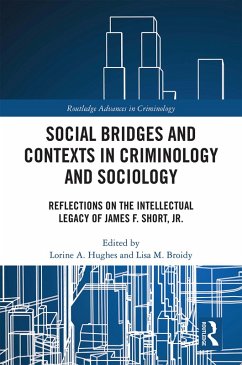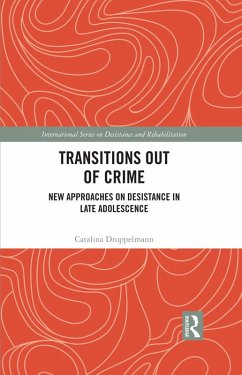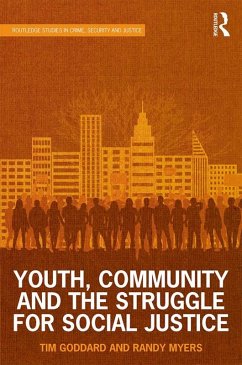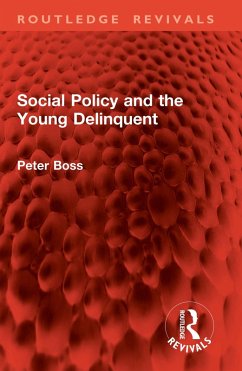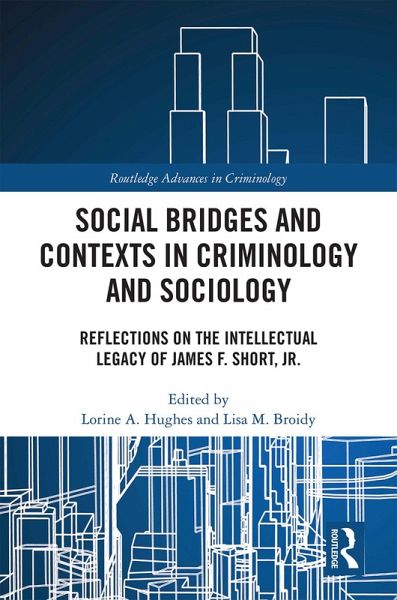
Social Bridges and Contexts in Criminology and Sociology (eBook, ePUB)
Reflections on the Intellectual Legacy of James F. Short, Jr.
Redaktion: Hughes, Lorine; Broidy, Lisa
Versandkostenfrei!
Sofort per Download lieferbar
41,95 €
inkl. MwSt.
Weitere Ausgaben:

PAYBACK Punkte
21 °P sammeln!
Social Bridges and Contexts in Criminology and Sociology brings together leading scholars to commemorate the illustrious career and enduring contributions of Professor James F. Short, Jr., to the social sciences. Although Professor Short is best known as a gang scholar, he was a bridging figure who advanced the study of human behavior across multiple domains.Individual chapters document Professor Short's intellectual development and highlight the significance of his theoretical and empirical work in a range of specialty areas, including suicide and homicide, criminological theory, field and se...
Social Bridges and Contexts in Criminology and Sociology brings together leading scholars to commemorate the illustrious career and enduring contributions of Professor James F. Short, Jr., to the social sciences. Although Professor Short is best known as a gang scholar, he was a bridging figure who advanced the study of human behavior across multiple domains.
Individual chapters document Professor Short's intellectual development and highlight the significance of his theoretical and empirical work in a range of specialty areas, including suicide and homicide, criminological theory, field and self-report survey research methodologies, white-collar crime, hazards and risks, levels of explanation, microsocial group processes, and the etiology of gang violence and delinquency. A special feature of this book is the collection of brief personal reflection essays appearing after the main chapters. Authored by Professor Short's students, colleagues, collaborators, and friends, these essays provide powerful testimonials of the influence of his intellectual legacy as well as his generous spirit and commitment to mentorship.
Written in a clear and direct style, this book will appeal to students and scholars of criminology and sociology, and all those interested in the important contributions of Professor James F. Short, Jr., to these subject areas.
Individual chapters document Professor Short's intellectual development and highlight the significance of his theoretical and empirical work in a range of specialty areas, including suicide and homicide, criminological theory, field and self-report survey research methodologies, white-collar crime, hazards and risks, levels of explanation, microsocial group processes, and the etiology of gang violence and delinquency. A special feature of this book is the collection of brief personal reflection essays appearing after the main chapters. Authored by Professor Short's students, colleagues, collaborators, and friends, these essays provide powerful testimonials of the influence of his intellectual legacy as well as his generous spirit and commitment to mentorship.
Written in a clear and direct style, this book will appeal to students and scholars of criminology and sociology, and all those interested in the important contributions of Professor James F. Short, Jr., to these subject areas.
Dieser Download kann aus rechtlichen Gründen nur mit Rechnungsadresse in A, B, BG, CY, CZ, D, DK, EW, E, FIN, F, GR, HR, H, IRL, I, LT, L, LR, M, NL, PL, P, R, S, SLO, SK ausgeliefert werden.




